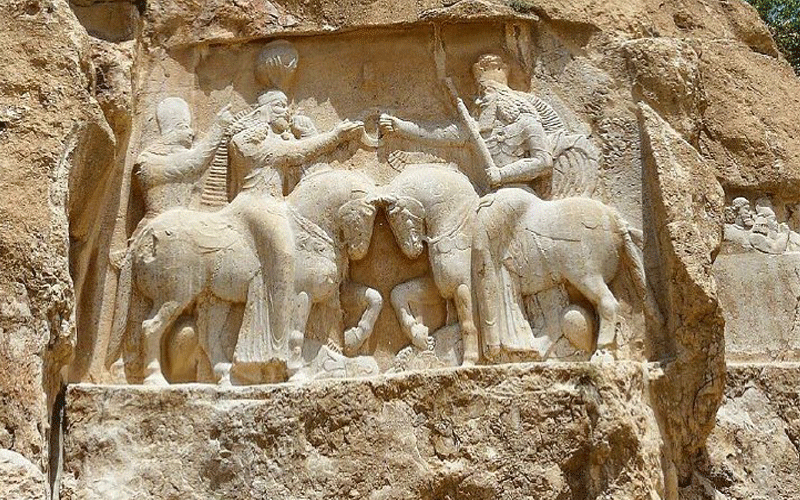Ahura Mazdâ, by his thought (and words and actions) first ordered the cosmos and still upholds the true/real cosmic Order, the visible image of which is the day-lit sky with the sun as its center piece. Ahura Mazdâ is also the one who engendered many of the elements in the cosmos, and he is its ruler. His two epithets, ahura and mazdâ, which also make up his name, refer to these functions. In the Gâthâs, these epithets are still independent of one another, although either of them is likely to be followed by the other in the same strophe. In the Young Avesta, Ahura Mazdâ is clearly the name of the divinity, and whether there still was a feeling for what the words originally meant is uncertain. By the Achaemenid period the univerbation process was complete, and the name appeared as Ahuramazdâ, which in turn became Parthian and Middle Persian Õhrmazd, Õhrmezd, and, still later, Hormazd. Ahura Mazdâ is closely associated with the six “Life-giving Immortals.” These were originally parts of Ahura Mazdâ’s sacrifice, but then became deities in their own right. They are still more complex entities, however, as they also represent parts of the cosmos and serve as “guardians” of things in this world (Source: Introduction to Zoroasterianism).


 Ancient Culture of Persia: Zoroastrian Notion of Lie
Ancient Culture of Persia: Zoroastrian Notion of Lie














































